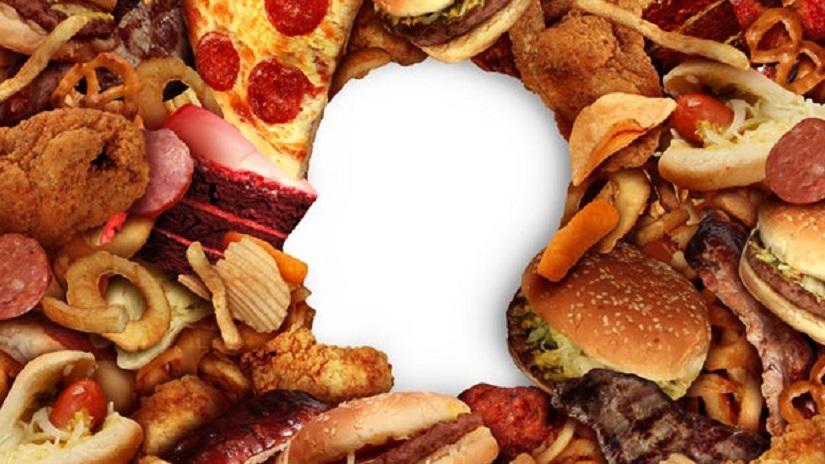 We all must have heard our friends complaining that they ate a lot last night as they were stressed or emotional. And this is very natural; we all do it too, right? Whenever we are stressed or having a crappy day at work, we try to pacify ourselves by eating a lot of high-calorie food items. Not that it solves our problem or changes anything, but it makes us feel better temporarily or distracts us from our problems. Although high-calorie food is generally known to be harmful for our health, but if findings of the recent study are to be believed, it is important to keep a check on your food intake, especially when you are under stress.
We all must have heard our friends complaining that they ate a lot last night as they were stressed or emotional. And this is very natural; we all do it too, right? Whenever we are stressed or having a crappy day at work, we try to pacify ourselves by eating a lot of high-calorie food items. Not that it solves our problem or changes anything, but it makes us feel better temporarily or distracts us from our problems. Although high-calorie food is generally known to be harmful for our health, but if findings of the recent study are to be believed, it is important to keep a check on your food intake, especially when you are under stress.
The study was published in the Journal of Cell Metabolism. For the study, researchers developed an animal model that helped them to understand that a high-calorie diet when combined with stress resulted in more weight gain than the same diet caused in a stress-free environment. It is because of a molecular pathway in the brain controlled by insulin that drives the additional weight gain, reports NDTV.
"This study indicates that we have to be much more conscious about what we're eating when we're stressed, to avoid a faster development of obesity," said Herbert Herzog, lead researcher of the study.
Researchers, in order to understand what controls this 'stress eating', analysed different areas of the brain in mice. Food intake is controlled by a part of the brain known as the hypothalamus, while emotional responses including anxiety are processed by another part of the brain - called the amygdala.
"Our study showed that when stressed over an extended period and high-calorie food was available, mice became obese more quickly than those that consumed the same high-fat food in a stress-free environment," explains Kenny Chi Kin Ip, lead author of the study.
The researchers discovered a molecule called NPY, which the brain produces naturally under stressful situations that further directs us to eat more. "We discovered that when we switched off the production of NPY in the amygdala weight gain was reduced. Without NPY, the weight gain on a high-fat diet with stress was the same as weight gain in the stress-free environment. This shows a clear link between stress, obesity, and NPY," said Ip.
To understand what might control the NPY boost under stress, the scientists analysed the nerve cells that produced NPY in the amygdala and found they had receptors, or 'docking stations', for insulin - one of the hormones which control our food intake.
In general, our body produces insulin soon after we eat, which helps cells absorb glucose from the blood and sends a 'stop eating' signal to the hypothalamus feeding center of the brain.
The findings of the study revealed that chronic stress alone slightly raised the blood insulin levels; but in combination with a high-calorie diet, the insulin levels were raised 10 times, in comparison to mice that were stress-free and were fed a normal diet.
The study showed that these prolonged, high levels of insulin in the amygdala caused the nerve cells to become desensitised to insulin, which stopped them from detecting insulin altogether. In turn, these desensitised nerve cells boosted their NPY levels, which both promoted eating and reduced the bodies' normal response to burn energy through heat, the study showed.
"Our findings revealed a vicious cycle, where chronic, high insulin levels are driven by stress and a high-calorie diet promoted more and more eating. This really reinforced the idea that while it's bad to eat junk food, eating high-calorie foods under stress is a double whammy that drives obesity," Herzog asserted.
Since abnormal insulin level is the main reason behind various diseases, one must keep a watch on their insulin levels as it has more wide-spread effects in the brain than it was previously assumed.


